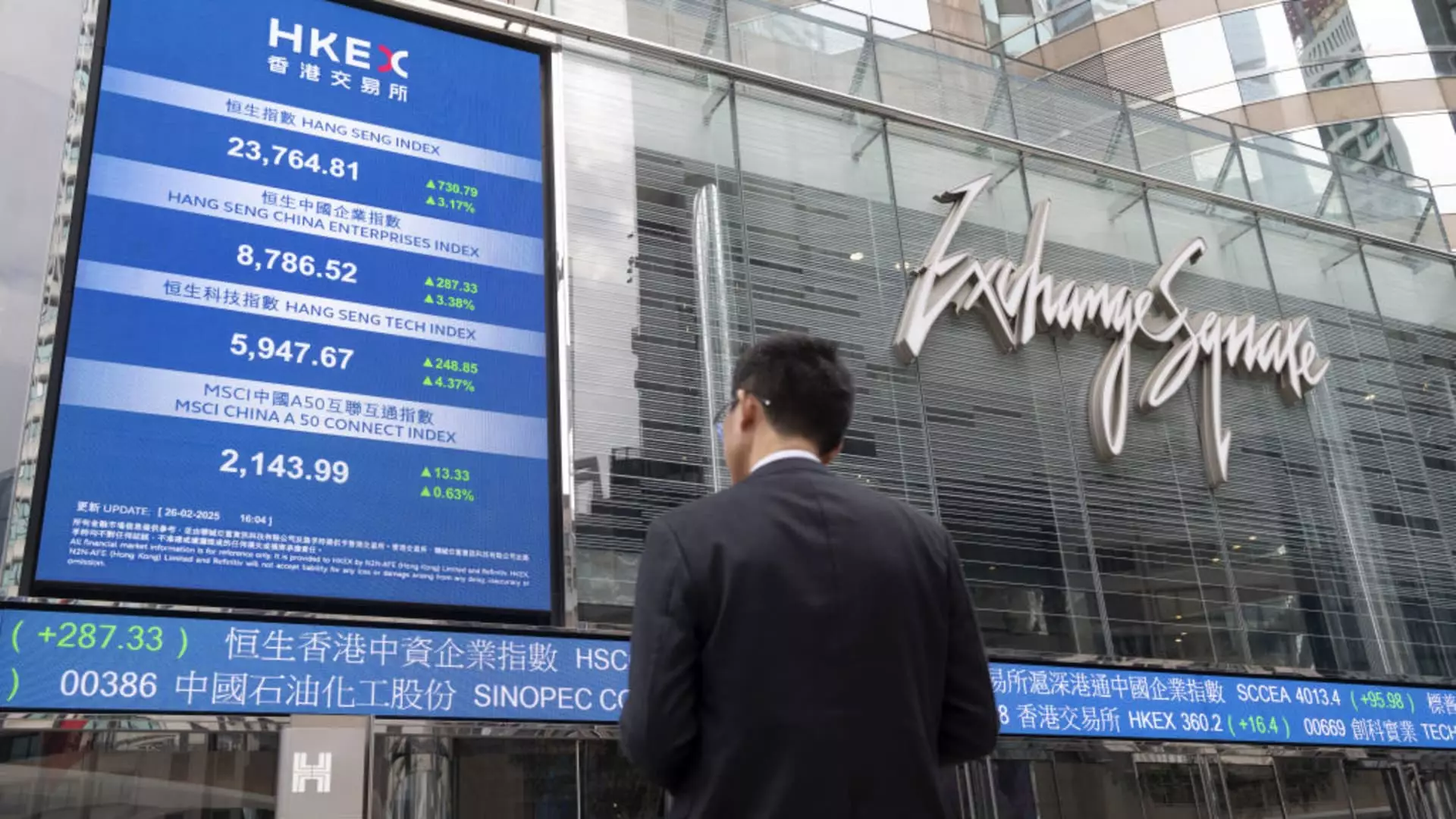In a surprising turn of events, Chinese enterprises are seizing a remarkable opportunity to launch their initial public offerings (IPOs) in Hong Kong as international investors show renewed interest in the region. The catalyst for this enthusiasm emerged in late January, following DeepSeek’s announcement of a state-of-the-art artificial intelligence breakthrough. For the first time in over three years, the significance of IPOs is resonating within the ever-important economies of Asia, even amidst ongoing U.S.-China trade tensions. This wave of positive sentiment reveals a shifting landscape, where prominent entities like George Chan, global IPO leader at EY, have noted the synchronized efforts between IPO aspirants, investors, and regulators to nurture a thriving IPO environment in Hong Kong.
The landscape for initial public offerings is multifaceted and deeply intertwined with market sentiment. These financial instruments offer an exit strategy for early-stage investors to cash in on their stakes. Notably, the return of long-term U.S. funds indicates a growing confidence towards Chinese investment opportunities. As Chan echoed, this surge in interest isn’t merely speculative; rather, it reflects a cautious optimism about the resilience of China’s economic prospects.
The Impact of AI on Investment Sentiment
The momentum gained from DeepSeek’s technological advancements has sent ripples throughout the global tech community. The company’s venture into AI, claiming capabilities that rival industry giants like OpenAI at more appealing costs, captivated the attention of numerous investors. Consequently, Hong Kong’s Hang Seng index experienced a significant uptick, soaring to heights not seen in three years. This spike speaks volumes about investors’ outlook on both technology and the potential of Chinese companies to innovate despite external constraints, such as export bans on advanced semiconductor technologies.
Additionally, this excitement has paved the way for significant public listings in Hong Kong. For instance, the IPO of the bubble tea powerhouse Mixue on March 3 was met with overwhelming enthusiasm, drawing heavy oversubscription. Such transactions not only bolster Hong Kong’s stock market but also signify a shift in investor priorities towards companies that demonstrate potential for strong post-IPO performance.
Regulatory Changes: A New Era for Listings
One cannot overlook the regulatory landscape that is shaping this resurgence. The Hong Kong Stock Exchange has made strategic amendments to its listing regulations, aiming to facilitate the entry of companies already listed on mainland exchanges. This regulatory flexibility empowers Chinese firms like Contemporary Amperex Technology (CATL) and others to look toward Hong Kong as a viable capital market option. Hengrui Pharmaceuticals, among other firms, is actively pursuing Hong Kong listings. This emergent trend reacts not only to the financial desires of Chinese companies but also aligns with the broader intentions of regulators to diversify financing options in light of changing global economic dynamics.
Furthermore, the central government in China appears to be navigating towards a friendlier atmosphere for private enterprises after years of tightened control. The rare meeting between President Xi Jinping and technology entrepreneurs indicates a pivot towards supporting innovation within the private sector. This shift provides a fertile environment for IPOs to flourish as entrepreneurs have more bravely stepped into the public spotlight.
Challenges Ahead: A Cautious Outlook
However, this resurgence does not come without cautionary notes. Despite the encouraging early indicators, the road to a full recovery remains daunting. KPMG highlights that while the initial quarter of 2023 outperformed last year’s figures, the IPO count is still woefully short of the peaks witnessed in 2021, when Hong Kong recorded thirty-two IPOs that amassed a staggering HKD 132.7 billion. The adjustments made by the Hong Kong stock exchange may be beneficial, but they don’t erase the impact of geopolitical tensions and market volatility.
Investors and analysts alike recognize that the current positive trajectory is fragile. As EY’s Chan aptly pointed out, even one unexpected incident could reverse this uptrend, resulting in a massive shift in market dynamics. The memory of past events, such as the fallout surrounding the Didi IPO, lingers as a reminder of the volatility residing within this marketplace.
In this intricate web of opportunities and challenges, the overall narrative is one of cautious optimism; the renewed interest of global investors combined with regulatory support sets the stage for a renewed IPO era in Hong Kong, yet the specter of unpredictability looms large.

